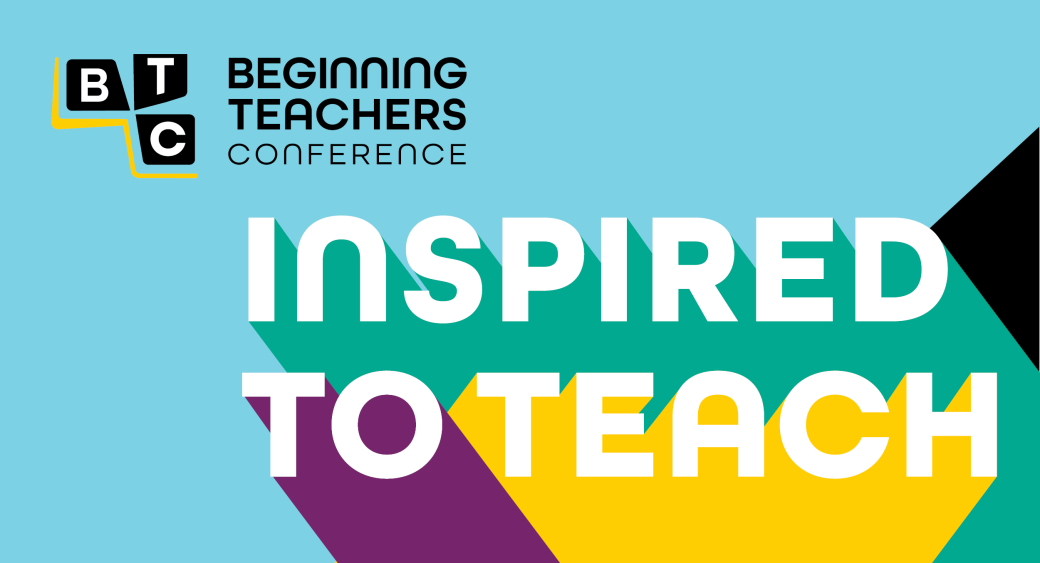Welcome to all new teachers!
You are embarking on an exciting journey in an enjoyable, challenging and rewarding career.
The ATA wants to make sure that new teachers start out on the right foot. Here you’ll find resources, FAQs and information that will help you as you begin teaching in Alberta.
Do you have your online account yet?
Vote in ATA elections, receive library materials or join a specialist council—there's many reasons to get one
Read more
Welcome to the Profession
A quick PDF guide to the Alberta Teachers’ Association
Join the Beginning Teacher Network
Professional learning and mentorship support for Alberta teachers who are
- New to the teaching profession (first 2 years)
- New to the province
Choose your own adventure!
There are two ways to join the Beginning Teacher Network. Either option will give you access to no-cost virtual sessions, facilitated by experienced teachers, on timely topics relevant to your beginning teacher context. During these sessions, you will
- explore professional learning topics
- get professional advice, and
- connect with colleagues about the unique challenges of beginning teachers in Alberta.
Cohort groups – Get release time to attend sessions during the day!
Apply to join our Beginning Teacher Network Cohort Program! Receive release time, at no cost to your school, to attend sessions during the school day!
What you’ll get: Four times in the school year, you’ll get a morning of sub release time (at no cost to your school) to attend a 120-minute virtual session with your cohort group.
How to join: Fill out the intake form
Open sessions – Get access to after-school sessions (no sub plans necessary)!
These virtual sessions take place after school and are open to all Alberta beginning teachers.
What you’ll get: Each month, you’ll get the chance to attend a 60-minute virtual session on a specific topic. You can choose specific sessions, or you can attend them all!
How to join: Check out the ATA PD Sched site to choose the sessions that interest you!
Other resources for new teachers
Beginning Teachers’ Conference

The 30th annual Beginning Teachers’ Conferences are being held at the Fantasyland Hotel, Edmonton, September 26–27, 2025 and at the Best Western Premier Calgary Plaza Hotel & Conference Centre, Calgary, October 3–4, 2025.
Eligibility
Registration is open to teachers in their first two years of classroom teaching who have not previously attended the conference and those teachers new to teaching in the province.
Teachers in charter, federal and private schools must be associate members of the ATA to attend. Find out how to become an associate member.
Edmonton conference—September 26–27, 2025
Teachers who live in Red Deer and north should register for the Edmonton conference.
Calgary conference—October 3–4, 2025
Teachers who live south of Red Deer should register for the Calgary conference.
FAQ for new teachers
Below are answers to questions new teachers often ask.
If your question is not answered here, check Worth Talking About (using your online ATA account). Information is produced monthly by Teacher Employment Membership Support (TEMS) and contains a wealth of information for all teachers.
If you still have questions, contact TEMS staff.
Certification
How do I apply for a teaching certificate?
In Alberta, all teaching certificates are granted by the Alberta Education registrar. A teaching certificate can be interim or permanent.
If you are eligible for certification, apply through the Teacher Workforce Information System (TWINS).
The minimum requirements and costs for certification are listed here.
Don’t forget to also apply for your Teacher Qualifications Service (TQS) evaluation.
If you have questions, contact Professional Development (PD) staff.
What are the different types of teaching certificate?
Temporary teaching authority
Graduates from an Alberta bachelor of education program who have received an offer of employment from a school division may be eligible for a letter that grants them temporary teaching authority for 90 days.
Interim professional certificate
An interim professional certificate may be granted to applicants who have completed a bachelor of education program in Alberta, in other provinces or abroad.
An interim professional certificate generally expires on August 31 of the third year following the year in which it was issued. The registrar may grant extensions of an interim professional certificate for up to a three-year period.
Permanent professional certificate
After two successful years of full-time teaching (approximately 400 days) and two successful evaluations from your school leaders, you may apply for your permanent professional certificate.
A permanent professional certificate remains in effect unless withdrawn by the minister of education.
Find out more about teaching certificates here.
Contracts
What do I do if information is missing from my contract?
Teaching contracts are typically brief documents that indicate your employing school division, your contract type and term length, the full-time or part-time nature of your position, and a few other administrative details concerning pay dates and resignation requirements. Information assigning you to a particular work site or teaching assignment is rarely included.
Information about salary and benefits is not included in your teaching contract. This information is found in your collective agreement.
If you have questions about teaching contracts, contact TES staff.
What are the different types of teaching contract?
In general, there are three types of teaching contract: temporary, probationary and continuous.
Temporary teaching contracts are offered for terms up to a year in length. Beginning teachers may be placed on temporary contracts to cover the assignments of teachers who are on leave or to fill other short-term vacancies. The start and end dates of temporary teaching contracts vary greatly.
Probationary teaching contracts are offered to some beginning teachers. Teachers on probationary contracts are not covering for teachers on leave or filling short-term vacancies. That said, there is no guarantee that the contract will be renewed at the end of its term. Probationary contracts end on June 30 and can be renewed if the teacher agrees. Typically, successful performance during a probationary contract leads to a continuous contract.
Continuous teaching contracts may be awarded to teachers who have completed at least two years of teaching and who have had two successful evaluations.
Pay and benefits
Where do I find out how much I will be paid?
Salary and benefit information for teachers is found in most collective agreements. Your position on the salary grid is determined by your years of formal teacher education and your years of professional teaching experience.
The current collective agreements for Alberta’s public, separate and francophone school divisions can be found here.
If you have questions about salary or benefits, contact TES staff.
How do I find out where I will be placed on the salary grid?
The Teacher Qualifications Service (TQS) is the agency in Alberta responsible for evaluating a teacher's years of education and experience to determine salary.
TQS application information and fees can be found here.
If you have questions about the salary grid, contact TQS staff at tqs@ata.ab.ca.
Where can I find out more about the other benefits I am entitled to?
Detailed information on the specific entitlements of your collective agreement (including assignable time maximums, employment insurance, group benefit plans and types of leave) can be found here.
If you have questions about salary or benefits, contact TES staff.
What are all these deductions that are coming off my pay every month?
In addition to employment insurance (EI) and Canada Pension Plan (CPP) contributions, you’ll notice some other deductions coming off your pay every month. Most deductions are listed in your pay advice, so review it carefully. If you have questions, contact your school board’s human resources or payroll department.
Professional development
What’s a TPGP?
Every year, you must develop a teacher professional growth plan (TPGP) that maps out your PD goals for the year. These goals should be informed by a self-evaluation of your current teaching context and areas of potential growth related to the competencies listed in Alberta Education’s Teaching Quality Standard.
The ATA offers growth planning templates and an online self-evaluation tool.
If you have questions, contact PD staff.
What kind of PD opportunities exist for teachers?
The ATA offers a wide array of conferences, workshops and PD events.
As an ATA member, you can join one specialist council for free, attend your annual teachers’ convention, and participate in face-to-face and online PD workshops. Your school division might even have a mentorship program for new teachers.
For more information about the ATA’s PD programs and services, go here.
If you have questions, contact PD staff.
Does the ATA have any resources I can access to help inform my work?
Yes! The ATA develops and curates a range of resources to support your career-long learning.
Check out the print materials, web guides and interactive kits available through the ATA library.
Access resources developed through the ATA’s ongoing work in Indigenous education; inclusive education; and diversity, equity and human rights.
If you need help finding something specific, contact PD staff.
Scholarships, grants and awards
Funding access for PD
The ATA and the ATA Educational Trust offer a wide range of scholarships, grants and awards you can access for attending specialist council conferences, enrolling in postsecondary courses or graduate degrees, and more. Click here for a complete listing of these opportunities.
If you have questions, contact PD staff.
Professional conduct and competence
What’s the difference between conduct and competence?
Professional conduct describes your behaviour and actions—how you conduct yourself as a professional teacher. The Code of Professional Conduct lists the minimum expectations for teacher conduct.
Professional competence refers to the pedagogical knowledge, skills and attributes you possess as a professional teacher. Alberta Education’s Teaching Quality Standard lists the minimum expectations for teacher competence.
For more information, contact TES staff.
What happens if a teacher engages in unprofessional conduct?
Teachers who engage in unprofessional conduct may be subject to professional discipline through the office of the Alberta Teaching Profession Commission.
More information about conduct complaints and the discipline process is available here.
The Association provides advice, assistance and potentially representation to teacher who are subject to a complaint. If you have received a notice of a compliant, contact the Regulatory Affairs unit immediately at 780-447-9460.
Who can I talk to if I’m having trouble navigating a tricky relationship with a colleague, parent or student?
The ATA can provide advice, support and mediation services to help you manage difficult interpersonal relationships.
Don’t hesitate to contact TES staff for support.
What happens if a teacher fails to demonstrate professional competence?
Teachers must continue to demonstrate the competencies in the Teaching Quality Standard throughout their career.
The Teacher Growth, Supervision and Evaluation Policy explains the relationship between a teacher’s self-directed professional growth and the role of school leaders in supervising and evaluating teachers to ensure continued competence.
In the rare situation in which a teacher fails to demonstrate ongoing competence (despite the ongoing process of growth, supervision and evaluation), the teacher may be subject to an evaluation of their teaching or to a competence complaint.
The Association provides advice, assistance and potentially representation to teacher who are subject to a complaint. If you have received a notice of a compliant, contact the Regulatory Affairs unit immediately at 780-447-9460.
More information about competence complaints and the practice review process is available here.
If you have questions, contact TES staff.
Who can I talk to if I need help finding PD opportunities or resources?
Don’t hesitate to contact PD staff if you need help finding or accessing PD supports.
Getting involved
How can I get more involved with the ATA?
There are many ways you can become more involved with the ATA and its various subgroups (locals, specialist councils, convention associations and bargaining units).
Participate in one of the ATA’s advocacy or political engagement campaigns.
Apply to sit on an ATA committee or volunteer to serve as a consultant or an instructor.
Or simply follow the ATA on social media.
No matter what your level of engagement, we’re glad to have your help!
How do I help elect the ATA’s leaders?
The ATA elects members of its Provincial Executive Council every two years.
More information about running for office, promoting candidates and voting is available here.
Contact
Contact
1-800-232-7208 (toll free in Alberta)








